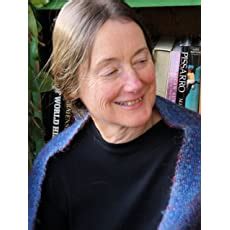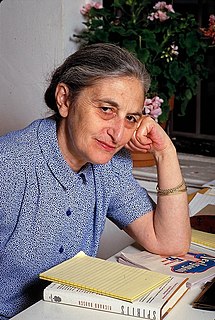Цитата Мэри Роуз О'Рейли
Я бы не специализировался на английском языке и не стал бы преподавать литературу, если бы не смог привести контраргумент о правдивости художественной литературы; тем не менее, по мере того как писатели отворачиваются от трудолюбивых деревень Джорджа Элиота и Томаса Харди, я все меньше и меньше узнаю от них, что помогает мне размышлять о своей жизни. Со временем я обнаружил, что соглашаюсь с оценками курса, написанными моими более вспыльчивыми первокурсниками: «Вся литература, которую мы читали в этом семестре, была удручающей». Как наивно. Как разумно.
Темы цитат
Способен
О
согласии
Отъезд
Был
Создан
Курс
Депрессивный
Элиот
Английский
Художественная литература
Найдено
Первокурсник
Джордж
Ушел
Хад
Харди
Помогает
Как
Трудолюбивый
Учиться
Меньше
Жизненная
литература
Я
Моя жизнь
Сам
Наивный
Обдумывать
Читать
Вменяемый
Тем
не менее
Студенты
учат
их
термину Томас
Время
Правдивость
Поворачивает
деревни
Писатели
Написано
Связанные цитаты
Великая литература всегда была написана в том же духе, и это действительно прощение грехов, а когда мы находим, что это становится обвинением в грехе, как у Джорджа Элиота, который рвет своего Тито на куски с такой уверенностью, как если бы он был часовым механизмом, литература начала превращаться во что-то другое.
Читать много. Но читайте как писатель, чтобы увидеть, как это делают другие писатели. И сделать свои знания литературы на английском языке настолько глубокими и широкими, насколько это возможно. На семинарах писателям часто говорят читать то, что сейчас пишется, но если это все, что вы читаете, вы ограничиваете себя. Вам нужно получить хорошее общее представление об истории английской литературы, чтобы вы могли писать, исходя из этих знаний.
Острая критика заставила чувствительного Томаса Харди, одного из лучших романистов, когда-либо обогативших английскую литературу, навсегда отказаться от художественной литературы. Критика довела до самоубийства английского поэта Томаса Чаттертона. . . . Любой дурак может критиковать, осуждать и жаловаться — и большинство дураков так и делают. Но чтобы понимать и прощать, нужны характер и самообладание.
Я не хотела учить своего ребенка читать, поэтому читала ему на ночь и закрывала книгу на самом интересном месте. Он сказал: «Что случилось потом, папа?» Я сказал: «Если ты научишься читать, ты узнаешь. Я слишком устал, чтобы читать. Я прочту тебе завтра». Итак, у него была потребность хотеть научиться читать. Не учите детей читать. Не учите их математике. Дайте им причину хотеть этого. В школе они работают взад-вперед.
Я спросил себя, убью ли я своих родителей, чтобы спасти его жизнь, вопрос, который я задавал себе с пятнадцати лет. Ответ всегда был да. Но со временем все эти мальчики исчезли, а мои родители остались. Теперь я все меньше и меньше желал убивать их ради кого бы то ни было; на самом деле, я беспокоился за их здоровье. Однако в данном случае я должен был сказать «да». Да я бы.
Публичная библиотека — самая демократичная вещь в мире. То, что там можно найти, погубило диктаторов и тиранов: демагоги могут сколько угодно преследовать писателей и указывать им, что им писать, но они не могут стереть написанное в прошлом, хотя и пытаются достаточно часто... Люди, которые любят литературы, по крайней мере, часть их разума невосприимчива к индоктринации. Если вы читаете, вы можете научиться думать самостоятельно.
Вы никогда не должны читать только для «удовольствия». Читайте, чтобы стать умнее! Менее осуждающий. Более склонен понимать безумное поведение своих друзей, или, что еще лучше, свое собственное. Выберите «тяжелые книги». Те, на которых вы должны сосредоточиться во время чтения. И ради бога, не позволяйте мне когда-нибудь услышать, как вы говорите: «Я не умею читать художественную литературу. У меня есть время только для правды». Вымысел - это правда, дурак! Вы когда-нибудь слышали о «литературе»? Значит фантастика тоже тупая.
Литература не может развиваться между категориями «дозволено» — «не позволено» — «это можно, а это нельзя». Литература, которая не является воздухом современного ему общества, которая не смеет вовремя предостеречь от грозящих нравственных и социальных опасностей, такая литература не заслуживает названия литературы; это только фасад. Такая литература теряет доверие своего народа, а ее изданные произведения используются как макулатура вместо того, чтобы быть прочитанными. -Письмо к IV Всесоюзному съезду советских писателей.
Я изучал английскую литературу по программе с отличием, а это значит, что приходилось проходить курсы в разные века. Вы должны были начать с древнеанглийского, среднеанглийского и продвигаться к современному. Я подумал, что если я это сделаю, это заставит меня прочитать некоторые вещи, которые я мог бы не прочитать самостоятельно.
Переводная литература может быть увлекательной. Есть что-то такое интригующее в чтении текста из вторых рук — прозы, уже прошедшей дополнительный фильтр, иное сознание, в облике переводчика. Некоторые из моих любимых писателей, писавших на английском, делали это, хотя английский язык не был их родным языком, так что здесь тоже ощущается дистанция или искажение. Конрад. Набоков. Эти писатели использовали английский язык интересным образом.
Наверное, я трачу больше времени на написание, чем на чтение научной фантастики. Я обнаружил, что научно-фантастическая литература настолько реагирует на всю предшествующую литературу, что это своего рода фрактал. Это дошло до уровня детализации, за которым обычный человек не может следить, если вы не фанат. Он повторяет многие предыдущие поколения итераций.







































